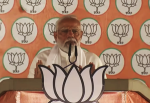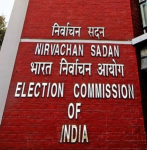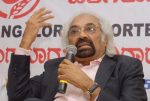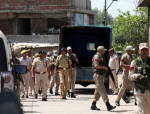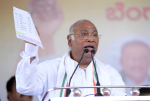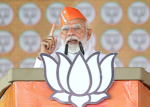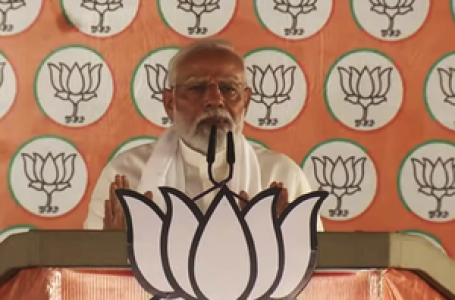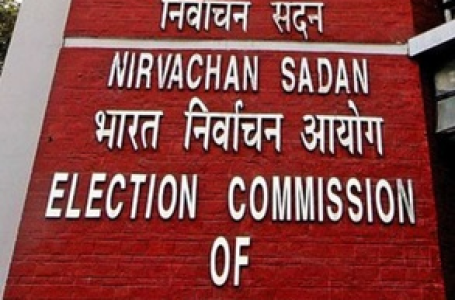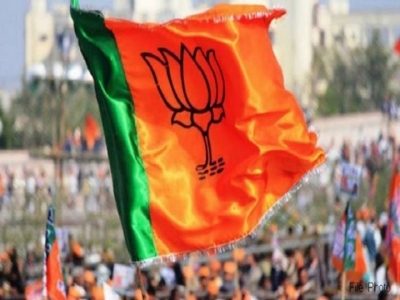
In the Bharatiya Janata Party (BJP)’s scheme of things, Gujarat is possibly next in importance only to Uttar Pradesh, even though it is less than a third in size.
For the last half century, Gujarat has provided fertile ground for the growth of the BJP’s special brand of politics. During the turbulent 1970s, it was the site of the student uprising against the Chimanbhai Patel government that inspired Jayaprakash Narayan’s ‘Bihar Movement’, culminating in the imposition of Emergency, and facilitating the rise of the Bharatiya Jana Sangh, the BJP’s earlier avatar.
Through the last three decades, it has been not just an enormously successful laboratory for the flowering of Hindutva, it has been Prime Minister Narendra Modi’s karmabhoomi, where he created the “Gujarat model”, the epitome, apparently, of the principles of good governance. It was this that he sold successfully to an expectant nation in 2014, and the BJP came to power at the Centre. Therefore, it is from Gujarat that Mr Modi’s BJP derives its inspiration, even though he is no longer its Chief Minister.
The BJP, clearly, cannot afford to lose the Gujarat elections, scheduled for early next month, or even be seen to be slipping as it did last time, when it lost seats. In fact, the BJP’s real ambition, it is said, is to better — or at least match — the record of Madhavsinh Solanki. Riding on the KHAM (Kshatriya, Harijan, Adivasi, Muslim) coalition propounded by Madhavsinh Solanki in the 1980s, the Congress had scored a spectacular electoral win in 1985, winning 149 of the 182 seats in the Gujarat assembly.
In Gujarat, the BJP has been in power since 1995, broken by one spell of President’s Rule and a short stint by the Rashtriya Janata Party – in short, about 26 years. Earlier, that is from 1960, when Gujarat was carved out of the erstwhile Bombay state, till 1995, the Congress ruled the state for almost exactly the same length of time. The Congress’s stint in office, too was interrupted by three spells of President’s Rule, and two terms of the Janata Party.
Traditionally, Gujarat, barring a brief showing by the Rashtriya Janata Party, for the last three decades and more, has witnessed a direct contest between the Congress and the BJP. But in these elections, there is a new factor – the Aam Aadmi Party.
The AAP has, of course, been in power in Delhi since 2015, seven years at a stretch; earlier this year, it wrested Punjab from the Congress and sidelined the Shiromani Akali Dal. Emboldened, it decided to take on Himachal Pradesh and Gujarat. However, after a brief foray in Himachal Pradesh, during which its top leaders Delhi Chief Minister Arvind Kejriwal, Deputy Chief Minister Manish Sisodia and Punjab Chief Minister Bhagwant Mann visited the state, the party decided to focus its energies and money on Gujarat. Clearly, the AAP found a more receptive audience in the western state, and it looked as though it had successfully converted the elections there into a three-cornered contest – and that, too, in a fairly short span of time.
Mr Modi, who remains the BJP’s star campaigner, has taken note of this. In his speeches in Gujarat, he does not mention the AAP: instead, he has been warning his partymen of the Congress’s apparently “stealthy” attempts to campaign below the radar – no major rallies or press conferences but door-to-door campaigning on the ground, “poisoning” people’s minds and mobilising booth level workers. His attempt appears to be to talk up the Congress so that it does not collapse altogether, and end in a direct contest between the BJP and AAP.
Mr Kejriwal, on his part, is doing precisely the opposite: he doesn’t mention the Congress in his speeches at all, but instead trains his guns on the BJP. For, it is only by occupying the entire Congress space that he can hope to turn the elections into a BJP vs AAP fight, a situation in which his party might actually have a chance.
However, it appears that interest in the AAP is waning now: according to sources in Ahmedabad, as long as the AAP leaders campaigning in Gujarat were focusing on the party’s “Delhi model” – the promise of clean politics, good governance and of changing the system – a section of people in the state, disillusioned with the business-as-usual approach of mainstream political parties were looking at the AAP with interest. But the moment that the AAP began to talk of printing images of Gods on currency notes and temples, this section – educated youth, both urban and rural, professionals and retired government servants – began to lose interest. They were looking for an alternative to the BJP and Congress, not a BJP ‘B’ team.
The AAP changed its approach because of two reasons: one, after its state chief Gopal Italia said that temples were “centres of exploitation”, the party panicked and felt there was need to distance itself from the statement; two, Mr Kejriwal’s fondness for trying to anticipate what Mr Modi might say, something that annoys the BJP, but which, equally, is creating doubts in the minds of the AAP’s new admirers.
But there is no doubt: the AAP is contesting the Gujarat elections seriously and has announced star journalist Isudan Gadhvi as its chief ministerial face; and this is causing anxiety to both the established parties, possibly more to the Congress.
The problem with the Congress
In the last state elections in 2017, the BJP did eventually win, but those results had held the mirror to both the BJP and the Congress and magnified their weaknesses.
The seemingly invincible, larger-than-life Narendra Modi was created in the crucible of Gujarat : the people of the state had returned his government to power thrice in a row, endorsing his brand of personality politics, and powering him to South Block as Prime Minister in 2014. But, three years later, by tempering their approval in the 2017 state polls, by keeping the BJP one short of the 100-mark in a House of 182, they had not only exposed the chinks in his armour, but also shone a light on cracks in the Gujarat model of development. Simultaneously, they sent out a political message to the rest of India, and to the Congress.
At that time, much of the credit for the Congress’s performance (it won 77 seats, an improvement on the 61 it had secured in 2012) went to three young men who had channelised the people’s discontent against the BJP, and set the stage for the revival of the Congress in Gujarat, much in the way the India Against Corruption movement and Anna Hazare fuelled the anti-Congress mood that the BJP harvested in 2014.
Five years ago, the arrival of three young men on the centre-stage of Gujarat politics – Hardik Patel, Alpesh Thakore and Jignesh Mewani – almost brought the BJP government down. They managed to effectively voice the grievances of a vast swathe of society, and worked towards a solidarity of the youth of the communities that they represented, the Patidars or Patels, the OBCs and Dalits, and they succeeded in bringing down the BJP’s final tally.
The beneficiary was the BJP’s principal opponent, the Congress. But in the five years since then, the latter has failed to capitalize on the mood created by the young men to topple the incumbent government even though all three subsequently joined the Congress, and it was expected that this would ensure a turnaround in 2022. But the Congress, expectedly, marginalised the trio. Today, Hardik Patel and Alpesh Thakore are in the BJP, and Jignesh Mewani is largely silent.
With elections due in the state, it was expected that Congress scion Rahul Gandhi’s hugely successful padayatra – if the reports are reflective of the ground – would traverse Gujarat as well. But there are no signs of that. Instead, the Congress has been apparently working silently on the ground — it is difficult to gauge how much of that is gaining traction except in Mr Modi’s speeches.
In April, when this writer was in the state, it was more than evident that there was BJP-fatigue, and that people wanted change. Not a day appeared to go by, for instance, without question papers of every possible examination – school, university or for government jobs – being leaked. And everyone appeared to be unhappy, whether they were government employees, including the police, ex-Army personnel, vidya sahayaks (teachers on contract), mid-day meal staff and government contract workers, or farmers, cattle-breeders, tribals, doctors, teachers, forest department staff, ASHA workers, frontline health workers who put their lives on the line during the COVID-19 pandemic, autorickshaw drivers, roadside egg and non-vegetarian eatery owners and vendors – everyone was out, demanding a better deal.
But despite the dissatisfaction with the BJP government in Gujarat, where there have been three chief ministers in the last five years, the Congress does not appear to be making much of an effort and the entry of the AAP is most likely to cut into the vote share of the Congress rather than that of the BJP.
An issue that might have been expected to make an impact in these elections were the Morbi bridge disaster in which so many people lost their lives – a clear example of poor governance and criminal negligence – but the Congress appears to be taking its cue from its leader Rahul Gandhi who had said that he did not wish to “politicise” the deaths. At best, reports from the state say it might affect half a dozen constituencies in Morbi and adjoining areas. The other issue is the travesty of justice in the release of those convicted in the Bilkis Bano case at the instance, we now know, of Union Home Minister Amit Shah. But the Congress and AAP are not talking about it lest it help the BJP polarize voters along communal lines. As a former AAP member pointed out: “In 2015 the AAP sent a fact-finding team to investigate the lynching of Akhlaq in Uttar Pradesh. Today, it is silent on Bilkis Bano. That’s a long way to travel.”
For the moment, therefore, the BJP, which is using its national star campaigners like Mr Modi, its talk of a double engine government, and focusing on booth-level management, is in a position of advantage. – INDIA NEWS STREAM
The writer is a senior journalist. The views expressed are writer’s own.



